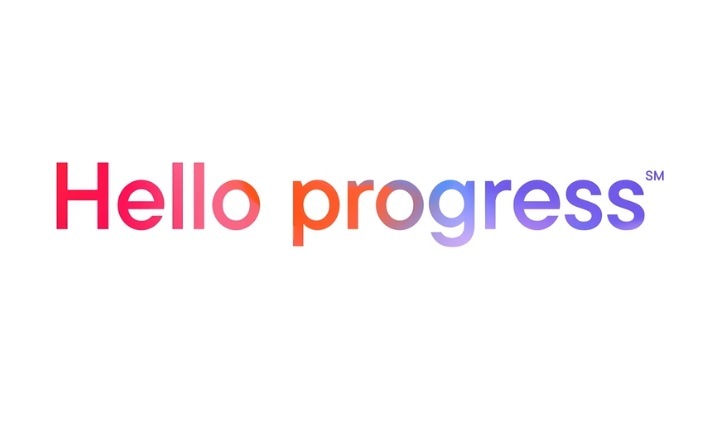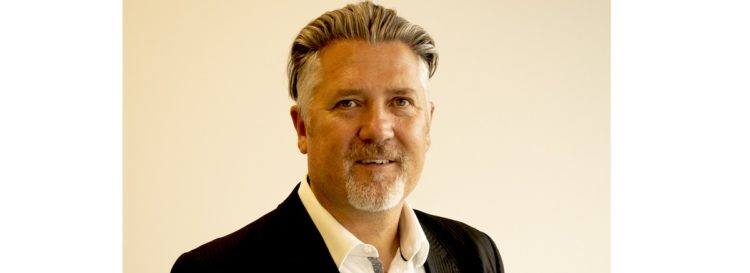Franklin Templeton’s ‘Hello Progress’ campaign has focused on 14 key markets as it aims to throw off perceptions of it as “old-fashioned”, according to its Head of Global Marketing.
Rick Andrews says the campaign, which is still running around the world, came out of recent global research, speaking to just under 700 current and potential clients. The research assessed how people perceive the firm, discovering that the strongest attribute associated with it was trust, which was a “good start”.
The “less good news” was that while trusted, the company was also seen as “a bit yesterday, a bit forgotten, a bit old-fashioned…we were very consistent, but consistently a bit dull.”
The conclusion was that the firm wasn’t being recognised for advances it had made in the last 10 to 20 years.
“So we thought that there was a huge opportunity for us to take that great value of trust, but also make ourselves more relevant in the modern age and then also to put a new colour palette in place that also allowed for some flexibility around the world.”
“So what we are trying to do here is give some flexibility to what we’re doing, but then also go out to market and tell a new story that demands attention.”
 ‘Hello Progress’ is a fundamentally optimistic message, Rick explains, and different to what Franklin Templeton and its competitors would have done in the past.
‘Hello Progress’ is a fundamentally optimistic message, Rick explains, and different to what Franklin Templeton and its competitors would have done in the past.
“With the fact that we were a bit forgotten and seen as a bit old-fashioned, we wanted to make a statement with this campaign.”
Some of the wording of the campaign takes a more playful tone than is common for the sector. The microsite for ‘Hello, Progress’ features buzzwords such as ‘Greeeeeeen’, ‘New fashioned’ and ‘Bigandsmall’.
“I think the first job of any advert is to catch someone’s attention,” Rick says, adding that a more straightforward campaign would offer nothing new.
The campaign and its tone aimed to bring across a more “youthful, playful” quality.
“So much of the competitor activity is just dry and dull. I fundamentally believe advertising has to entertain. And that dry sense of humour and wit engages people in a different way.”
Of the use of the word “progress” itself, Rick says, “who wouldn’t want progress in everything we’re doing and all aspects of life?” The message is “not meant to be shouty, not arrogant, but it’s sort of a nice call to action that everyone wants progress.”
He says that it is interesting how often the word “progress” is said in Franklin Templeton, whether in the context of the campaign or not.
“Being able to own something like ‘Hello Progress’ really sets us apart from the competition and very deliberately so.”
On the question of whether asset management audiences are receptive to this type of advertising, Rick argues that the discussion of B2B is overstated – advertising is people to people or “P2P”.
“Businesses don’t talk to businesses – it’s human beings. Whether you’re an institutional or retail investor, you’re a human being.
“I think we don’t give enough credit to institutional audiences to approach them at the human level,” adding that it is often assumed that the institutional audience will be willing to read 40-page white papers even though “they are suffering the same time famine as everyone else.
“People want shorter ways to get to the answer, but people want to be entertained. So I think we have to bring that through to all audiences.”
He adds that the current campaign may be backed up by additional activity in the institutional space in the future.
Surround sound
In pushing the campaign out, Rick has been aiming to achieve what he calls “surround sound”.
“We want our target audience to experience the campaign in multiple ways. We have some TV advertising, we’ve got traditional print, we’ve got a whole load of digital, and we’re using social quite a lot now”.
Outdoor advertising has been a challenge to plan due to the pandemic and the reduction in commuting. In addition, Franklin Templeton has also considered which markets not to deploy the campaign in.
“We were only going to put the campaign into countries where we could make a significant difference. Rather than giving everybody $50,000 and no-one seeing anything, we said we want 14 key markets where we will invest significantly so we can create this surround sound effect.”
The extensive investment has meant scaled up advertising in the markets where the campaign has hit – for example, a three-minute light show on the Burj Khalifa.
March will see the firm deploy out-of-home posters in London which are coated with a special chemical which actively removed carbon from the atmosphere; over the course of the campaign, this will remove the equivalent of the emissions from several thousand cars.
“We’re trying to do things differently – in an environmentally friendly way, but also trying to create that surround sound so that the audiences we want to influence can’t miss us.”
Feedback suggests the message has been heard; the head of the Singapore business reported receiving unsolicited phone calls for the first time from people who said they had seen the campaign and wanted to hear more about “the new Franklin Templeton”.
“So clearly we’ve hit a nerve somewhere on the positive side. There has been a lot of change and we’ve been a bit shy about talking about that.”
The acquisition of Legg Mason in 2021 is one part of this story – “one of the biggest integrations in the industry, all done under lockdown and through a global pandemic. Whether it’s because of that or despite that, it’s gone incredibly well.”
Another upcoming milestone is the deal to buy Lexington Partners, expected to close this quarter. At the same time, there have been significant investments in digital infrastructure.
He notes that after the decision to focus on certain markets, others that weren’t selected are now requesting to deploy it themselves.
“There’s nothing nicer than having other parts of the business saying, this is good, we want some too.
“The idea is that as we hopefully see success with this campaign, we will then revisit some of those other countries and say, right, what’s wave two going to include?
“How do we now sweep up and invest in some of these other countries because we know we’re seeing a return on our investment with the initial activity in the 14 countries? So I think that that internal demand is starting to pick up now, which is really nice.”
Global/local
Under the firm’s “global/local” model, some marketing functions are brought together under central control by Rick himself, such as web email, social media, central advertising and brand. Other aspects of marketing are run out of individual regions to account for local languages and regulations, with teams that are closer to clients and sales teams so they can react quickly when needed.
The global/local model also comes into play in learning from different parts of the business. The company brings together marketing leaders from around the world in a weekly council which shares learnings from different businesses.
“It might be that Australia has done something amazing and present it to the world. Hopefully as we democratise ideas they come to market quicker in different parts of the world. So Australia may have done the heavy lifting, but then we can adapt that campaign and that idea and use it in other parts of the world.”
Some learnings can be shared globally but local factors still come into play. The local adaptation of ads is extensive – while there may be six or seven main ads in the campaign, there are over 70 versions of these, coming down to questions as simple as whether Franklin Templeton is referred to as a “company” or a “firm”.
He notes that it is scientifically proven that different people in different parts of the world prefer different colours – for example, more muted blues and greens in northern Europe and warmer reds and oranges in more southern regions.
Rick says it will take time for the full effects of the campaign to be felt.
“Brands take years to build and can be destroyed overnight. You have to have a long-term vision for the brand,” he says, highlighting that the family ownership of Franklin Templeton means that the long-term view is part and parcel of what the company is about.
“We’re not here today, gone tomorrow. The decision to invest in the brand was very considered, but also, unanimous and whole-heartedly leant into. Everybody recognises that it’s not going to be transformative in a matter of weeks, but we’ve started that process.
“We need to invest in ourselves in order for people to feel more confident and know us better beyond just trust.”

